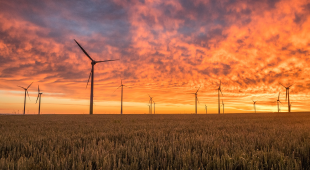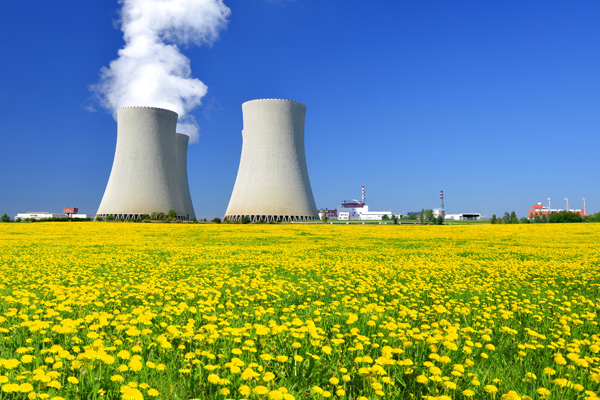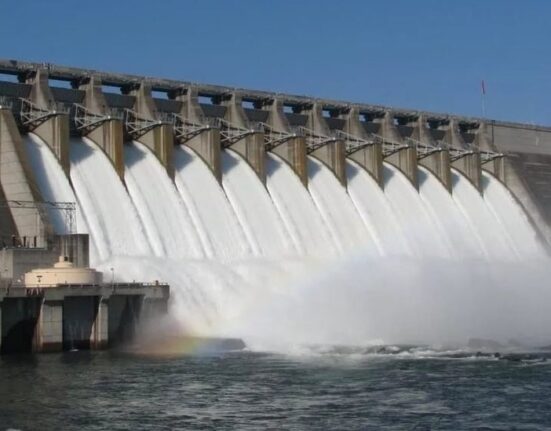OPINION – Does nuclear energy have the ability to solve all of our energy problems considering the environment, high demand and cost of energy supply, or is it just a time “bomb” awaiting explosion if utilised extensively? This is one question yet to be given complete answers and we would be touching on a few arguments in support and against the nuclear source of energy.
Many scientists and researchers have developed theories, arguments and understandings for and against nuclear energy. Nuclear energy is without doubt the source of energy that is not without many controversies and in order to help us decide on what would or could be the potential, risks, and future of nuclear energy, this article outlines some of the strongest arguments for and against it.
Arguments in Favour Of and Against Nuclear Energy
Here are some of the most popular and widely regarded arguments for and against nuclear energy for you to consider.
- Nuclear energy doesn’t release airborne toxic carbons that could affect the environment and its inhabitants.
After hydro, it ranks as the second-largest source of low-carbon energy worldwide. Additionally, nuclear energy was determined to be far less risky than other energy sources in a 2013 NASA study. According to this study’s calculations, nuclear energy accounts for the fewest fatalities. However, though 97% of nuclear radioactive waste is essentially harmless and could easily be disposed of within a few weeks just as regular waste, the remaining 3% is high-level waste that is radioactive for more than several hundred years and harmful for thousands or perhaps millions of years after it cools down. Thus, even if nuclear energy is regarded as a safe alternative because it produces energy without harming the environment, considerations also need to be given to the safety of its waste and its long-term effects.
2. The fact that nuclear energy raises the risk and potential for the proliferation of weapons, which is dangerous for the entire globe, is one of the main arguments against it. This is due to the fact that some nuclear energy-related processes used to produce electricity can also be used to create nuclear weapons, which in-turn could be used to destroy an entire nation or the environment even more quickly than the risks posed by health problems brought on by other forms of energy in the environment. However, new technologies are being developed that allow thorium to be used in place of uranium to generate electricity, as thorium is much more difficult to convert into nuclear weapons.
3. Nuclear waste management and disposal can be difficult.
When nuclear power plants are decommissioned; they produce radioactive waste, which is difficult to manage and dispose of. Therefore, these high-level nuclear wastes need to be stored in a facility that is isolated from people. Although, some experts have advised burying such wastes hundreds of feet underground, there is no assurance that this will be safe now or in the near future.
The world has significantly changed recently with engineers and scientists working hard to upgrade and advance nuclear technology; and whilst uranium today powers nuclear reactors, they are working towards moving to an alternative like thorium. Thorium is much more in abundance and its waste production and radioactivity is lower than uranium.
4. Currently, there are 444 operating nuclear power plants, which provide 11% of the energy consumed globally and around 20% of the energy utilised in the United States. This demonstrates that despite having a lower employment rate than other renewable energy sources, nuclear energy has shown to be most efficient and superior in terms of operations. A lot more energy will be produced if nuclear energy is more operational and additional reactors are set up to provide power, which may negate the need for other forms of energy.
Clearly, nuclear energy is more operationally effective than renewable energy sources. However, studies show that in order to meet energy demands and ensure energy abundance in the present and the future, the nuclear industry would need to grow to more than 14,500 reactors. However, this is simply not feasible due to the lack of suitable locations and the potential effects of nuclear waste, which could remain radioactive for centuries and can harm the environment if improperly disposed of.
5. The problem of where to build nuclear reactors proves to be difficult as there aren’t enough locations safe from potential disasters like droughts, flooding, storms, earthquakes, or other disasters that could result in a nuclear accident. Also, there aren’t enough water sources to place as many nuclear reactors as are needed to produce adequate power because they must be placed near water sources for cooling.
However, one of the benefits of nuclear energy is that it uses less space than other clean energy sources while producing more electricity than any of them; and whilst solar photovoltaic plants and wind farms need far more landmass and area to run in order to produce the same amount of power, the typical 1,000-megawatt nuclear structure only needs a little over 1 square mile.
6. Other energy sources can’t match the dependability of nuclear energy.
One factor that sets it far apart from other clean energy sources is its availability when properly embraced and harnessed. Compared to other options, nuclear energy is reliable in addition to being low-carbon. When the nation wants to transition to clean energy, especially when the wind and sun are not always available, this could pose a threat to the issue of power generation. Nuclear energy is therefore the most dependable clean energy that should be used.
The drawback of nuclear energy is that it is expensive to build nuclear power generating facilities.
7. Nuclear energy is largely safe.
Regulatory organisations are in place in many countries where nuclear power is in use to monitor safety procedures and the production of nuclear energy for human consumption. By doing this, there won’t be any incident involving the emission of radiation from a nuclear power plant off-site or the spread of nuclear weapons. Nuclear energy is one of the safest ways to protect the environment from harm and address the problem of global warming and climate change. With this approach and strict restrictions, the chance of nuclear accidents has been lowered to the barest minimum.
8. Fighting environmental pollution and threats to the environment and climate brought on by global energy production is possible with nuclear energy. Operating other types of energy sources has been shown to result in a greater death rate from environmental pollution; nuclear energy has fewer records of this.
Due to the burning of fossil fuels to generate power, millions of people perish every year as well as suffer from cancer, skin diseases, lung, and other respiratory disorders and illnesses. Despite the fact that a nuclear meltdown would undoubtedly be covered by the media, environmental contamination brought on by burning fossil fuels for energy production actually causes more deaths according to reports.
Additionally, those nuclear reactors were constructed using technology created before the ’80s and presently, scientists are working so hard to create and develop better technologies that can replace uranium and reduce the radioactivity of nuclear waste.











Leave feedback about this